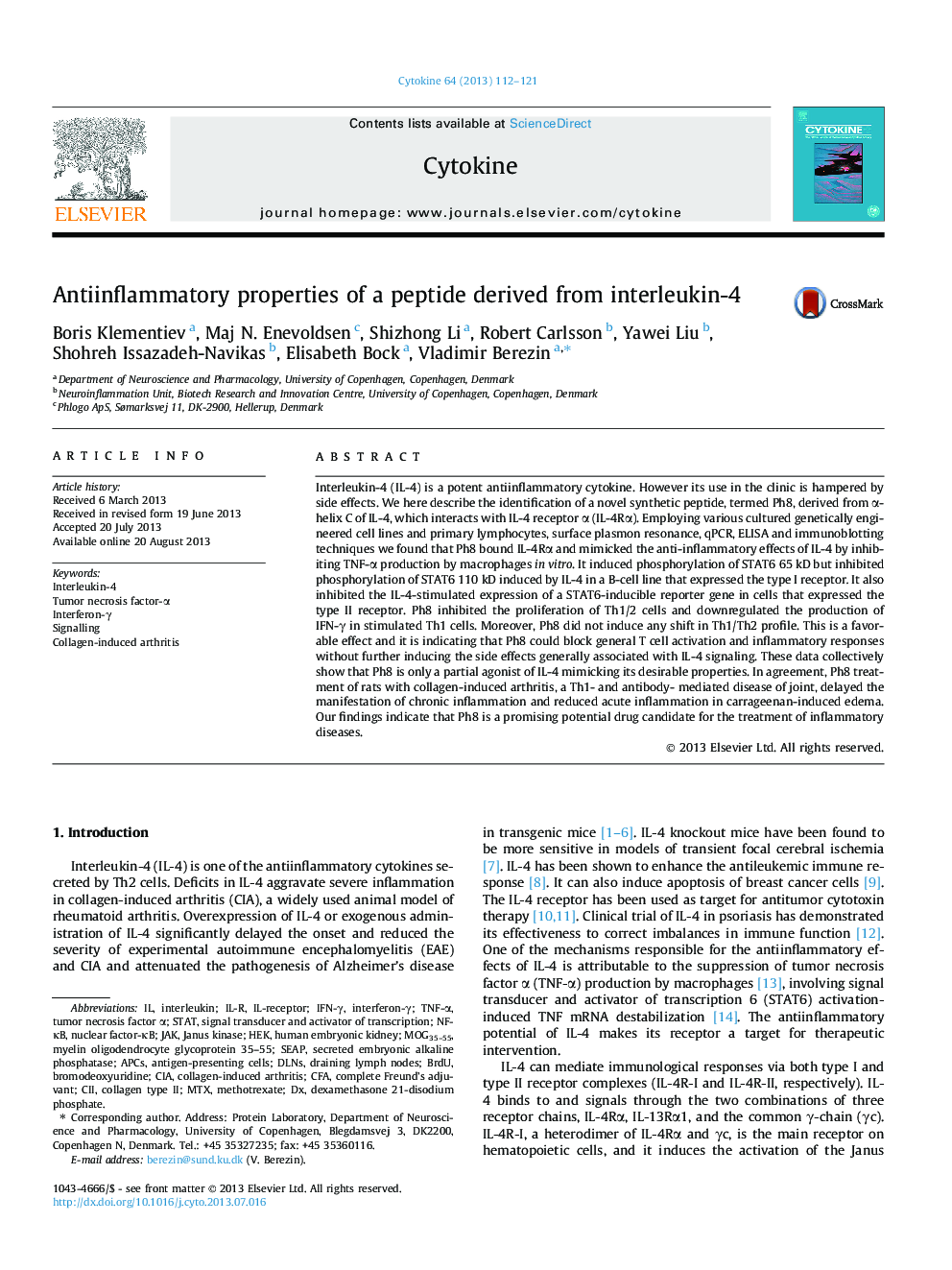| کد مقاله | کد نشریه | سال انتشار | مقاله انگلیسی | نسخه تمام متن |
|---|---|---|---|---|
| 5897734 | 1155276 | 2013 | 10 صفحه PDF | دانلود رایگان |
- We report a novel synthetic peptide which mimics anti-inflammatory properties of IL-4.
- The IL-4 mimetic is a partial agonist of the IL-4 receptor complex type I.
- The IL-4 mimetic is an antagonist of the IL-4 receptor complex type II.
- It delayed signs of chronic inflammation in collagen-induced arthritis in rat.
Interleukin-4 (IL-4) is a potent antiinflammatory cytokine. However its use in the clinic is hampered by side effects. We here describe the identification of a novel synthetic peptide, termed Ph8, derived from α-helix C of IL-4, which interacts with IL-4 receptor α (IL-4Rα). Employing various cultured genetically engineered cell lines and primary lymphocytes, surface plasmon resonance, qPCR, ELISA and immunoblotting techniques we found that Ph8 bound IL-4Rα and mimicked the anti-inflammatory effects of IL-4 by inhibiting TNF-α production by macrophages in vitro. It induced phosphorylation of STAT6 65 kD but inhibited phosphorylation of STAT6 110 kD induced by IL-4 in a B-cell line that expressed the type I receptor. It also inhibited the IL-4-stimulated expression of a STAT6-inducible reporter gene in cells that expressed the type II receptor. Ph8 inhibited the proliferation of Th1/2 cells and downregulated the production of IFN-γ in stimulated Th1 cells. Moreover, Ph8 did not induce any shift in Th1/Th2 profile. This is a favorable effect and it is indicating that Ph8 could block general T cell activation and inflammatory responses without further inducing the side effects generally associated with IL-4 signaling. These data collectively show that Ph8 is only a partial agonist of IL-4 mimicking its desirable properties. In agreement, Ph8 treatment of rats with collagen-induced arthritis, a Th1- and antibody- mediated disease of joint, delayed the manifestation of chronic inflammation and reduced acute inflammation in carrageenan-induced edema. Our findings indicate that Ph8 is a promising potential drug candidate for the treatment of inflammatory diseases.
Journal: Cytokine - Volume 64, Issue 1, October 2013, Pages 112-121
